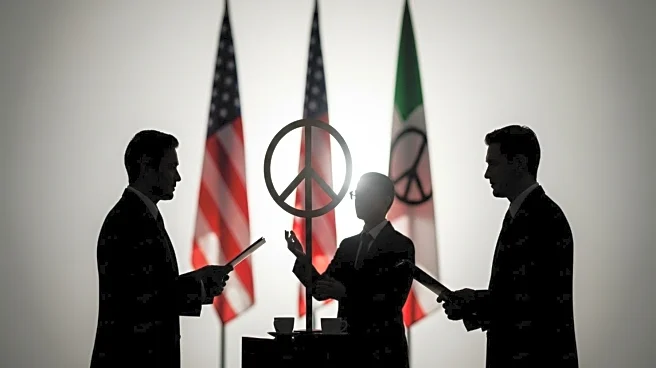What's Happening?
Delegations from the United States, Israel, and Hamas are convening in Egypt to discuss a potential ceasefire in Gaza, following President Trump's 20-point proposal. The talks aim to address key issues such as Israeli military withdrawal and the release of Palestinian prisoners in exchange for hostages. While Israel has accepted the proposal, Hamas has only partially agreed. Despite ongoing Israeli airstrikes, there is cautious optimism among Palestinians about the possibility of a truce. The negotiations are being led by Israel's minister of strategic affairs remotely, while Hamas' delegation is headed by Khalil Al-Hayya. The discussions are expected to last a few days, with hopes of reaching an initial agreement by the end of the week.
Why It's Important?
The outcome of these talks could significantly impact the geopolitical landscape in the Middle East. A successful ceasefire would alleviate the humanitarian crisis in Gaza, where ongoing Israeli strikes have resulted in numerous casualties. For the U.S., brokering a ceasefire would enhance its diplomatic standing in the region. However, failure to reach an agreement could lead to further escalation of violence, affecting regional stability and international relations. The talks also highlight the complex dynamics between Israel and Hamas, with potential implications for future peace negotiations.
What's Next?
If the talks progress positively, a formal ceasefire agreement could be announced soon, potentially leading to a reduction in hostilities. However, the success of the negotiations depends on both parties' willingness to compromise on contentious issues. International stakeholders, including other Middle Eastern countries, are likely to monitor the situation closely, as their interests are also at stake. The U.S. may continue to exert pressure on both sides to reach a deal, while humanitarian organizations prepare to address the needs of affected civilians in Gaza.
Beyond the Headlines
The ceasefire talks underscore the ongoing challenges in achieving lasting peace in the region. The involvement of President Trump and the U.S. highlights the role of international diplomacy in conflict resolution. The situation also raises questions about the long-term viability of any agreement reached, given the deep-seated animosities and historical grievances between Israel and Hamas. Additionally, the humanitarian impact of the conflict continues to be a pressing concern, with calls for increased international aid and support for Gaza's civilian population.










